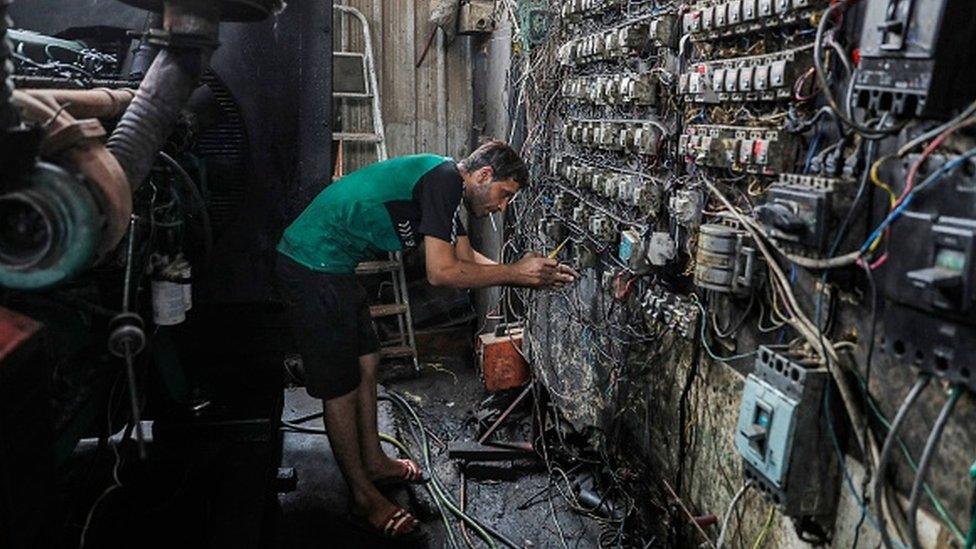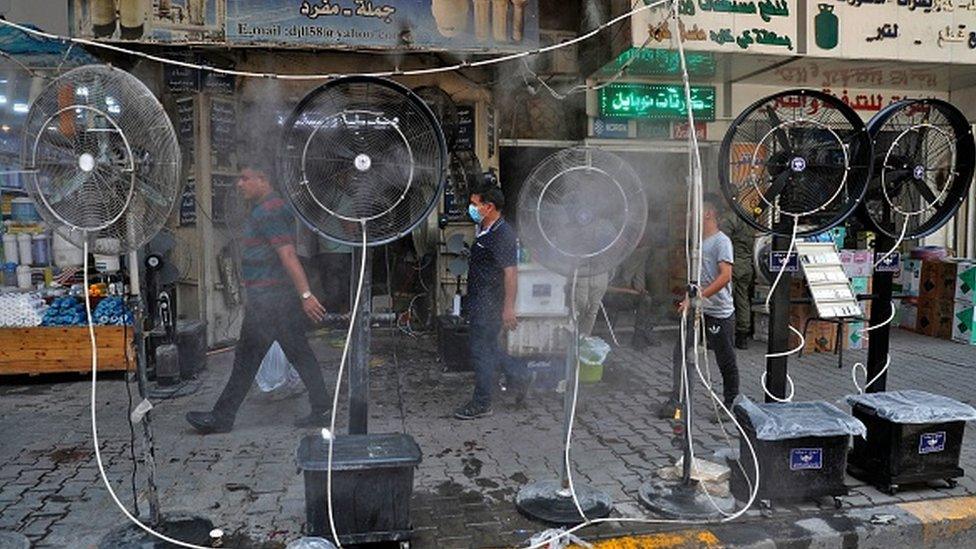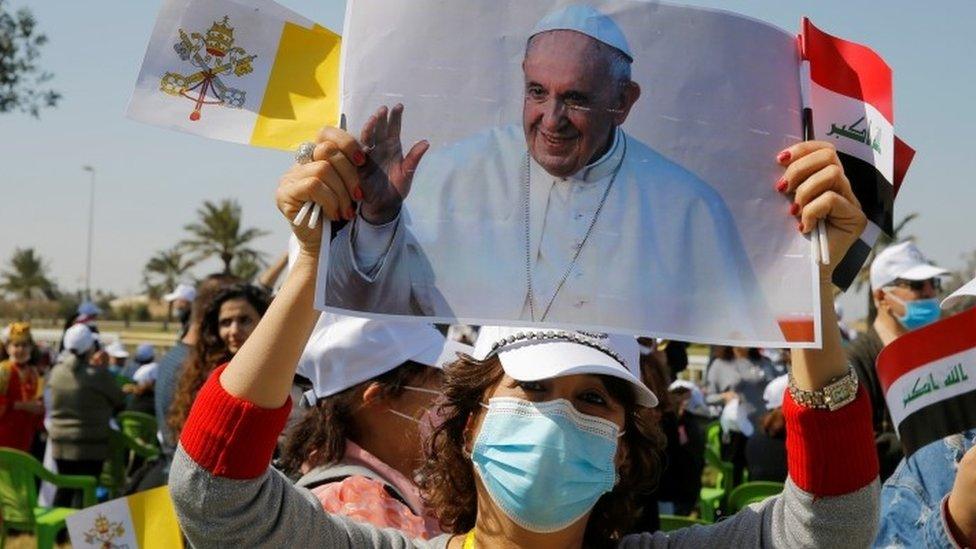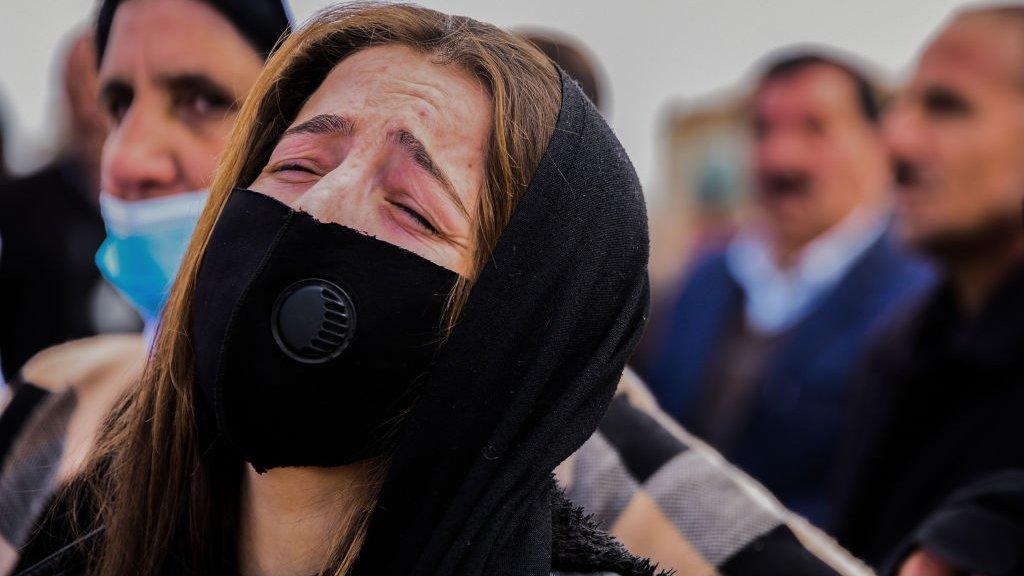Iraq power cuts stir protests as summer temperatures scorch country
- Published

Iraq's prime minister has announced an urgent plan to tackle the power cuts
Widespread power cuts have hit Iraq at a time when the country is suffering scorching summer temperatures.
The electricity cut on Friday was caused by the failure of a major power line, local media report.
The capital, Baghdad, and southern provinces have been particularly badly affected.
Protesters have taken to the streets against the outages - anger over power cuts has previously fuelled mass street demonstrations.
Earlier this week Electricity Minister Majed Mahdi Hantoosh submitted his resignation as political pressure built over repeated power cuts across the country.
Iraq's electricity ministry has cited a number of causes for the prolonged cuts. They included terrorist attacks on electricity lines, shortages of fuel for power stations, and the suspension of energy supplies from neighbouring Iran.
Crippled by US economic sanctions, Iran has been pressuring the Iraqi government to settle unpaid energy bills.
On Friday, Iraq's Prime Minister Mustafa al-Kadhimi announced urgent steps to tackle the widespread power cut. In a statement, he said he would form a committee to support the electricity ministry and "strongly confront all kinds of interference with power systems".
Most districts have been experiencing power cuts since the evening of 1 July, the Alsumaria TV network reported.

Temperatures have soared into the 50Cs this week in Iraq
This comes as a heatwave hits the country, with temperatures reaching as high as 52C (125F). Provinces across the country's south are shortening working hours citing extreme heat.
Iraq continues to grapple with crippling power shortages, particularly during the summer, which have been exacerbated by years of conflict since the US invasion in 2003.
BBC Middle East analyst Alan Johnston said Iraq's power network has been in a dire state for years, largely on account of bad management and corruption.

'The heat is driving us crazy'
by Haider Hadi, BBC News, Baghdad
For hours, in unbearable temperatures of up to 50C, Iraqis have been seeking respite from the heat. But a sudden shutdown of powerplants at midnight local time on Thursday has left them without electricity and air conditioning.
Since then, residents have had to rely on private generators, but these often overheat or run out of fuel.
Some families look for relief in their air-conditioned cars; others take several showers a day to cool down their bodies.
The power cuts have hit the south of Iraq especially hard. In Basra, where Iraq's oil wells are situated, people have started taking to the streets in protest and main roads had to be shut down.
In some of the southern cities, desperate locals have stormed the power stations. One of them told the BBC: "We have babies and old people, we have no others choice, the heat is driving them and us crazy."

You may also be interested in:
After days of a historic heat wave in Canada, wildfires have forced residents in a small British Columbia town to evacuate. Temperatures reached 49.6C (121.3F), breaking the country's highest recorded temperature.
Watch: Lytton, British Columbia residents flee wildfires
Related topics
- Published25 April 2021

- Published5 March 2021

- Published7 February 2021
